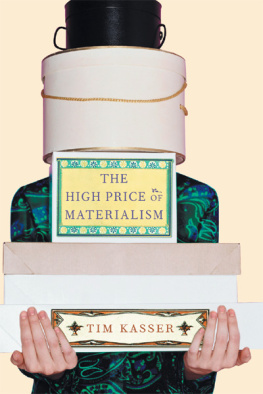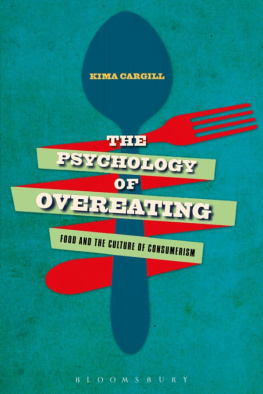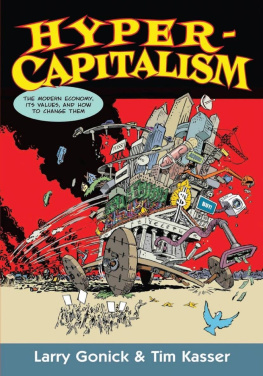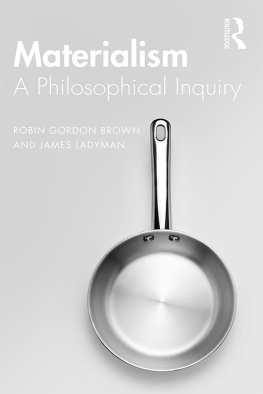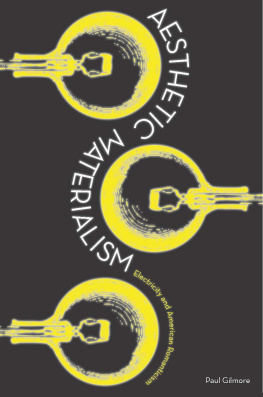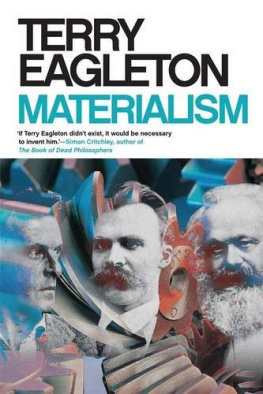
The High Price of Materialism
The High Price of Materialism
Tim Kasser
A Bradford Book
The MIT Press
Cambridge, Massachusetts
London, England
2002 Tim Kasser
The summary of The Rainbow Fish, by Marcus Pfister, is printed by permission of North-South Books.
All rights reserved. No part of this book may be reproduced in any form by any electronic or mechanical means (including photocopying, recording, or information storage and retrieval) without permission in writing from the publisher.
This book was set in Sabon by Achorn Graphic Services, Inc. and was printed and bound in the United States of America.
Library of Congress Cataloging-in-Publication Data
Kasser, Tim.
The high price of materialism / Tim Kasser.
p. cm.
Includes bibliographical references and index.
ISBN 0-262-11268-X (alk. paper)
1. Acquisitiveness. 2. Avarice. 3. MaterialismPsychological aspects. 4. Happiness. 5. Conduct of life. I. Title.
BF698.35.A36 K37 2002
302.17dc21
2002016506
To the doctors, nurses, researchers, and staff
at St. Jude Childrens Research Hospital in Memphis, Tennessee,
and the Midwest affiliate in Peoria, Illinois
Contents
Foreword by Richard M. Ryan
Acknowledgments
Chapter 1 Mixed Messages
Chapter 2 Personal Well-Being
Chapter 3 Psychological Needs
Chapter 4 Insecurity
Chapter 5 Fragile Self-Worth
Chapter 6 Poor Relationships
Chapter 7 The Chains of Materialism
Chapter 8 Family, Community, and the Earth
Chapter 9 Making Change
Epilogue
Notes
References
Index
Foreword
At this point in human history we have enough material resources to feed, clothe, shelter, and educate every living individual on Earth. Not only that: we have at the same time the global capacity to enhance health care, fight major diseases, and considerably clean up the environment. That such resources exist is not merely a utopian fantasy, it is a reality about which there is little serious debate.
Nonetheless, a quick look around most any part of this warming globe tells us just how far we are from achieving any of these goals. If we hold our eyes wide open we can see that the human community is instead dividing itself into two distinct worlds: a first world filled with opulence, luxury, and material excess; and a third world characterized by deprivation, poverty, and struggle. Whereas first and third worlds could formerly be distinguished along national boundaries, increasingly, and in most countries, one finds relatively insulated pockets of wealth surrounded by ever widening fields of impoverishment. Most of the worlds population is now growing up in winner-take-all economies, where the main goal of individuals is to get whatever they can for themselves: to each according to his greed. Within this economic landscape, selfishness and materialism are no longer being seen as moral problems, but as cardinal goals of life.
This global reality exists, however, only because people, and I mean each one of us, can so readily be converted to the religions of consumerism and materialism. Indeed, such mass conversion seems already to have occurred. Vast numbers of us have been seduced into believing that having more wealth and material possessions is essential to the good life. We have swallowed the idea that, to be well, one first has to be well-off. And many of us, consciously or unconsciously, have learned to evaluate our own well-being and accomplishment not by looking inward at our spirit or integrity, but by looking outward at what we have and what we can buy. Similarly, we have adopted a world view in which the worth and success of others is judged not by their apparent wisdom, kindness, or community contributions, but in terms of whether they possess the right clothes, the right car, and more generally, the right stuff.
Perhaps the most insidious aspect of this modern measure of worth is that it is not simply about having enough, but about having more than others do. That is, feelings of personal worth are based on how ones pile of money and possessions compares with that of others; both those who surround us in real life and those seen only in the pseudorealities of television and movies. In this context, no one can ever have enough because, aside from Bill Gates, there are always others who have more. Accordingly, at all levels of wealth one can find individuals who crave ever more expensive toys, status symbols, and image builders, and who subjectively feel that they need more than they currently have. As advertising executives have known for decades, we become good consumers only when we experience mere desires as urgent needs, and when our conception of the necessities of life becomes ever more blurry and bloated. Clearly, by these criteria, most of us have become good consumers.
It would be one thing if the promises of the consumer society were real, but they are not. And this is where this succinct, but important, book by Tim Kasser comes in. Kasser reviews a formidable body of research that highlights what for most of us is a quite counter-intuitive fact: even when people obtain more money and material goods, they do not become more satisfied with their lives, or more psychologically healthy because of it. More specifically, once people are above poverty levels of income, gains in wealth have little to no incremental payoff in terms of happiness or well-being. However, the central focus of Kassers treatise, and what makes it new and different, is that merely aspiring to have greater wealth or more material possessions is likely to be associated with increased personal unhappiness. He documents that people with strong materialistic values and desires report more symptoms of anxiety, are at greater risk for depression, and experience more frequent somatic irritations than those who are less materialistic. They watch more television, use more alcohol and drugs, and have more impoverished personal relationships. Even in sleep, their dreams seem to be infected with anxiety and distress. Thus, insofar as people have adopted the American dream of stuffing their pockets, they seem to that extent to be emptier of self and soul.
Perhaps even more important, Kasser provides one of the fullest explanations available of how these empty promises of consumerism can become deeply anchored in our psyches. His explanation focuses not on the play of macroeconomic forces that drive market consumerism, but on a closer-up view of what leads people to so persistently try psychologically to feed off of material goods and status symbols, even though they do not nourish.
Kasser highlights two reasons why materialism is associated with unhappiness. The first concerns the burdens that materialism places on the human soul. Desires to have more and more material goods drive us into an ever more frantic pace of life. Not only must we work harder, but, once possessing the goods, we have to maintain, upgrade, replace, insure, and constantly manage them. Thus, in the journey of life, materialists end up carrying an ever-heavier load, one that expends the energy necessary for living, loving, and learningthe really satisfying aspects of that journey. Thus materialism, although promising happiness, actually creates strain and stress.
Yet if materialism causes unhappiness, it is also the case that unhappiness causes materialism. Kasser shows how enhanced desires or needs to have more or consume more are deeply and dynamically connected with feelings of personal insecurity. Materialism, it appears, tends to ripen best among people who feel uncertain about matters of love, self-esteem, competence, or control. Indeed, to many people it appears to offer a solution to these common insecurities and anxieties. Our consumer culture persistently teaches that we can counter insecurity by buying our way to self-esteem and loveworthiness. The pervasive message, passed on in popular media, advertisements, and celebrity modeling, is that we will feel better about ourselves if we are surrounded by symbols of worthtoys that others can admire, clothes and adornments that convey attractiveness, or image products that communicate self-importance and aliveness. Kasser suggests that it is because our psychological insecurities are so easily connected with the promise of self-esteem through buying that the fires of consumption are hotly fueled.
Next page
